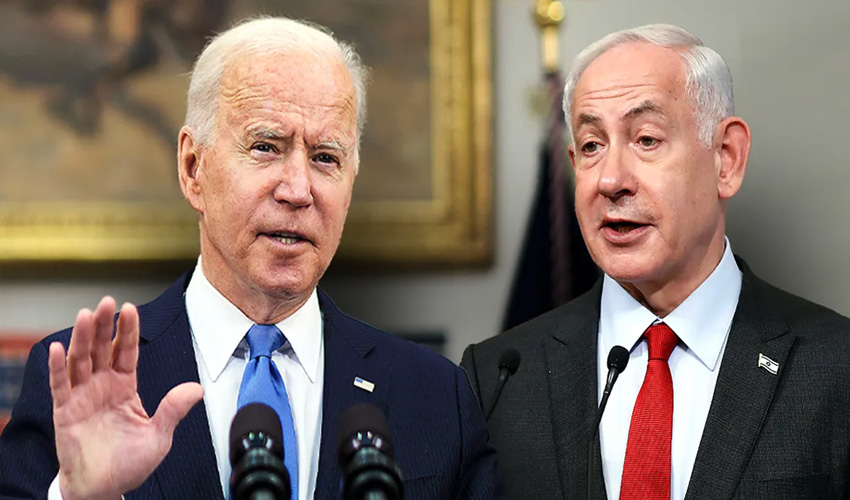US President Joe Biden on Wednesday firmly opposed any Israeli retaliatory strike on Iran’s nuclear sites, following Tehran’s missile barrage on Israel.
Speaking to reporters before boarding Air Force One, Biden emphasised the importance of a proportional response while acknowledging Israel’s right to defend itself.
“We’ll be discussing with the Israelis what they plan to do, but all seven of us [G7 nations] agree that they have the right to respond. However, the response should be proportional,” Biden said, indicating a collective stance among the world's leading economies.
His remarks come in the wake of Iran firing more than 180 ballistic missiles at Israel on Tuesday, which Biden had earlier described as “ineffective.”
The missile strikes followed the assassination of Hezbollah leader Hassan Nasrallah, allegedly by Israeli forces, and have heightened tensions in the already volatile region.
Israeli Prime Minister Benjamin Netanyahu vowed that Iran would "pay a heavy price" for the attacks, sparking speculation that Israel might target Iran’s nuclear or oil facilities.
However, Biden was quick to distance the US from any such plans. When asked directly if he would support an Israeli strike on Iran's nuclear sites, the president replied, "The answer is no."
Biden also revealed that additional sanctions against Iran were in the pipeline. “We will be imposing more sanctions on Iran,” he said, without elaborating on the specific measures.
Meanwhile, US National Security Adviser Jake Sullivan reiterated that Iran would face "severe consequences" for its missile attack on Israel. Sullivan, however, stopped short of detailing what form those consequences might take.
The attacks by Iran mark the second time this year that Tehran has directly targeted Israel. On Tuesday, nearly 200 rockets were launched towards Israeli territory, but they reportedly caused minimal damage and no known casualties.
The White House has also faced mounting pressure from Congress to tighten sanctions on Iranian oil exports, a key revenue source for Tehran. However, Biden’s administration has so far resisted bipartisan calls to intensify enforcement.
This latest escalation follows months of rising tensions in the Middle East, with Israel continuing to carry out strikes against Iranian proxies, including Hezbollah. Analysts have warned that Israel’s response to Tuesday’s attacks could be more forceful than previous measures, potentially targeting Iran’s key infrastructure.
In the US, the fate of Iran’s nuclear program remains a contentious issue, with sharp political divisions evident. During the vice presidential debate on Tuesday, Democratic candidate Minnesota Governor Tim Walz refrained from endorsing an Israeli strike on Iran, while Republican Senator JD Vance voiced support for Israel’s right to act as it sees fit.



























